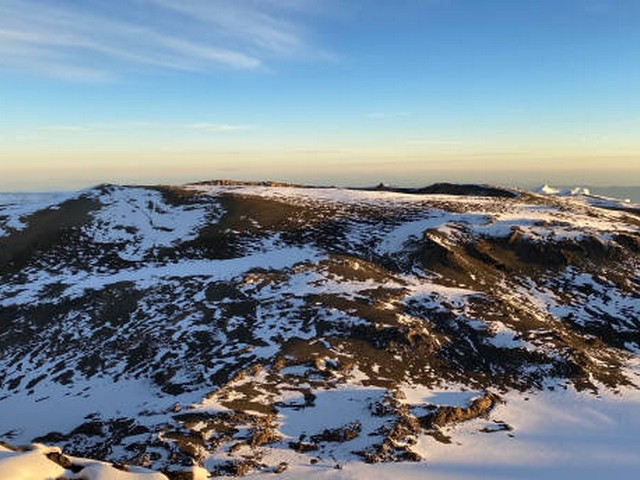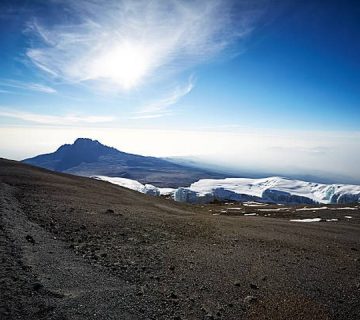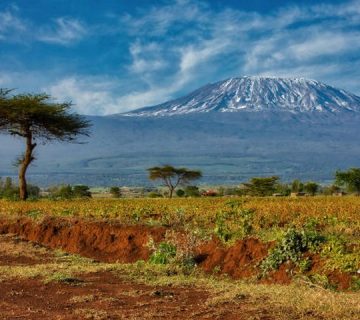Kilimanjaro Trekking Health Precautions: Secure a Safe and Spectacular Climb
Unveiling the Beauty of Mount Kilimanjaro
Imagine standing atop the highest peak in Africa, surrounded by vast skies and views that stretch endlessly into the horizon. Mount Kilimanjaro is not just a mountain; it is a beacon of adventure for trekkers from around the globe. However, the journey to its peak requires more than just determination and strength; it demands meticulous health planning and precautions. At Kilimanjaro Centre for Trekking and Ecotourism (KCTE), we are dedicated to ensuring that your trek is as safe as it is spectacular.
Why Health Precautions are Vital for Kilimanjaro Trekkers
Trekking Kilimanjaro is an exhilarating challenge, but it comes with its set of health risks due to altitude, climate variability, and physical exertion. Preparing adequately can make the difference between a successful climb and a potentially dangerous situation. Understanding and implementing health precautions are not just recommended; they are essential.
1. Understanding Altitude Sickness
Recognizing the Symptoms:
Altitude sickness is a common concern when ascending beyond 2,500 meters. Symptoms can range from headache, fatigue, and loss of appetite to severe acute mountain sickness (AMS). Knowledge of these symptoms is crucial for all climbers.
Preventative Measures:
Acclimatization is key. At KCTE, our itineraries are designed to allow gradual ascent and time for your body to adjust to the altitude. Hydration is also critical, as it helps mitigate some symptoms of AMS.
2. Fitness and Physical Preparation
Train Before You Trek:
Physical fitness significantly impacts your trekking experience. Engage in cardiovascular activities such as hiking, cycling, or swimming months before your trip. Strength training can also be beneficial.
Listen to Your Body:
While training, pay attention to your body’s responses. Training should be gradual to avoid injuries. Ensure you consult with a healthcare provider before starting any new fitness regime.
3. Diet and Nutrition on the Mountain
Eating Right for Energy:
Your body will require more calories during the climb, but altitude might reduce your appetite. Focus on a high-energy, carbohydrate-rich diet while avoiding overly sugary or fatty foods.
Stay Hydrated:
Dehydration can increase the risk of AMS. Drink plenty of water consistently throughout your climb. We provide clean, purified drinking water to keep you hydrated from start to finish.
4. Mental Health and Wellbeing
The Psychological Challenge:
Climbing Kilimanjaro is not just a physical challenge but a mental one as well. Prepare mentally through meditation, visualization, or by setting personal goals.
Stay Positive and Flexible:
A positive mindset can influence your physical performance and overall experience. Be prepared for changing conditions and keep a flexible attitude towards daily goals.
5. Proper Gear and Equipment
Dress for Success:
Layering is vital on Kilimanjaro. Prepare for cold temperatures at higher altitudes and warmer weather as you descend. Quality, broken-in hiking boots are essential, as well as thermal layers, a waterproof jacket, and UV protection gear.
Rent or Buy?:
At KCTE, we offer high-quality rental equipment tailored to the demands of Kilimanjaro. This not only ensures you have the appropriate gear but also reduces your luggage load.
Your Health is Your Wealth on Kilimanjaro
Your journey to the roof of Africa should be memorable for all the right reasons. By following these health precautions, you are setting yourself up for success. Remember, every step you take on Kilimanjaro is a test of your endurance, resilience, and spirit.
FAQs: Ensuring a Healthy Kilimanjaro Trek
What is the best way to prevent altitude sickness?
The best method is gradual acclimatization. It’s also important to stay hydrated and avoid overexertion. Listen to your body and communicate openly with your guides about how you feel.
How long does it take to properly acclimate before climbing Kilimanjaro?
We recommend spending at least one day of acclimatization for every 1,000 meters ascended. Our itineraries are designed to maximize acclimatization and enhance your climbing experience.
Can I climb Kilimanjaro if I have a medical condition?
Many people with various medical conditions have successfully climbed Kilimanjaro. It is crucial, however, to consult with your doctor and discuss your plans. Full disclosure with your tour operator also allows for proper preparations and support.
How important is physical training for Kilimanjaro?
Extremely important. The better your physical condition, the more you will enjoy the trek. Cardiovascular and strength training should be part of your preparation for at least 6 months prior to the climb.
Start Your Adventure with KCTE
Your safety, health, and enjoyment are our top priorities at Kilimanjaro Centre for Trekking and Ecotourism (KCTE). Choose us for an unforgettable, well-prepared journey to the summit of Mount Kilimanjaro. Embrace the adventure with confidence, knowing that you are in capable and caring hands. Book your Kilimanjaro climbing adventure with us today and take that first step towards the peak of achievement!




